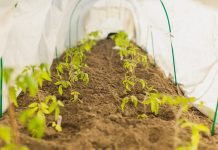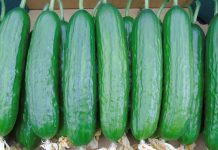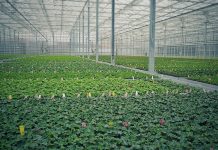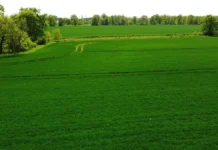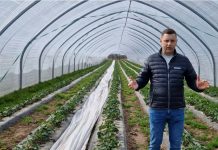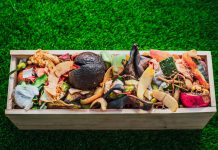Tak podczas konferencji zorganizowanej 13 maja podczas 57. Święta Kwitnącej Jabłoni przekonywał sądeckich sadowników prof. Eberhard Makosz. O niedobrze zaczynającym się sezonie debatowano koncentrując się na najbliższych perspektywach owoców deserowych, przemysłowych oraz programów pomocowych dostępnych także dla sadowników.
Wiosenne mrozy potraktowały region Łącka nieco łagodniej niż inne centra produkcji sadowniczej. Najważniejsze i na Podkarpaciu jabłonie zostały uszkodzone w mniejszym stopniu niż w okolicach Grójca, na Sandomierszczyźnie czy Lubelszczyźnie. Ucierpiały czereśnie, wiśnie, grusze – gatunki o zdecydowanie mniejszym na Sądecczyźnie znaczeniu, przetrwały śliwy i porzeczki. Jednak – zdaniem Profesora – na pierwsze realne szacunki strat w owocowaniu trzeba poczekać do zakończenia opadu świętojańskiego. (Szerzej Profesor skomentował sytuację
tutaj).
Łąckie sady nie ucierpiały tej wiosny tak bardzo, jak drzewa w innych regionach kraju
Sezon zapowiada się jako trudny i produkcja jabłek będzie droga. W ubiegłym roku do połowy maja wystarczyło wykonanie 3-5 opryskiwań ochronnych, w bieżącym sadownicy zmuszeni byli wyjeżdżać już 5-7 razy. Owoców będziemy mieć zapewne mniej niż rok czy dwa lata temu, jest więc szansa, że ich ceny będą wyższe.
Ostatnie zimne tygodnie odbiły się na hurtowych cenach jabłek. Zanotowano wzrosty rzędu 20%, cena ‘Gali’ w niektórych miejscach Polski doszła do 1,8 zł/kg. W maju średnio za tę odmianę oraz ‘Golden Deliciousa’ można było dostać 1,55 zł/kg, podczas gdy za ‘Šampiona’ czy ‘Idareda’ 1,2 zł/kg. Tym niemniej jabłka obu tych grup przy tej cenie już przynoszą dochód (koszty produkcji pierwszych dwóch z wymienionych E. Makosz szacuje na 1,4 zł/kg, dwóch ostatnich – 1,1 zł/kg).
Kwietniowe zapasy jabłek w Polsce są o około 50 tys. ton niższe, niż przed rokiem a ich ceny zaczynają wzrastać. Tej tendencji nie widać w krajach zachodniej Europy. Jest już prawie pewne, że w trwającym sezonie 2016/17 polski eksport jabłek przekroczy milion ton – już zaczyna brakować owoców na rynek wschodni. Otwarte pozostaje pytanie, czy lipcu-sierpniu cena zeszłorocznych jabłek dojdzie i przekroczy 2 zł/kg. Natomiast wyraźnie widać, że spada krajowa konsumpcja tych owoców. Z pewnością wpływ ma na to coraz bogatsza oferta owoców egzotycznych, ale poważnym czynnikiem ograniczającym zakupy polskich jabłek na naszym rynku jest mierna jakość towaru dostępnego w sieciach detalicznych. Statystycznie konsumujemy już niecałe 13 kg jabłek na osobę, podczas gdy przed pięcioma laty było to jeszcze nieco ponad 16 kilogramów.
Obok poprawy jakości oferty handlowej przez sadowników potrzebna jest większa, skuteczniejsza promocja spożycia jabłek, co zdaniem prof. E. Makosza jest zadaniem państwa.
Piotr Trojanowicz (Polkon Sp. z o.o.) przypomniał krótko potencjał przemysłu przetwórczego pracującego w Polsce – więc w oparciu o polskie surowce. Z około 1500 podmiotów gospodarczych (w 70% są to małe firmy zatrudniające do 10 osób) 30 zakładów produkuje zagęszczony sok jabłkowy (ZSJ), w 70 wytwarza się dżemy, powidła, konserwy owocowo-warzywne, przeciery. Małe firmy produkują głównie soki NFC – zajmuje się tym około 170 firm, a ich potrzeby surowcowe szacuje się około 250 tys. ton jabłek. Udział kapitału zagranicznego w branży sięga 60%, a wkład przetwórstwa w eksport artykułów rolno-spożywczych – 14%.
Piotr Trojanowicz: przetwórnie wchodzą w sezon bez zapasów mrożonek
W strukturze eksportu największą pozycję stanowią owoce i warzywa mrożone (28%) i soki owocowe (21,5%). Najwięcej eksportujemy mrożonej truskawki – w sezonie 2015-16 przekroczyliśmy 120 tys. ton, prognoza na bieżący rok zakłada nieco mniej. Od trzech lat rośnie eksport wiśni – w roku ubiegłym było to oko. 75 tys. ton. Wysyłka malin przekroczyła 40 tys. ton, czarnych porzeczek – 30 tys. ton. Naszymi największymi odbiorcami są kraje Unii Europejskiej – łącznie lokujemy na tym rynku 80% eksportu, do samych Niemiec trafia 34%.
Jak wynika z posiadanych przez P. Trojanowicza danych w nowy sezon przetwórnie wchodzą z pustymi magazynami. Zapasy mrożonej maliny są szacowane na około 5 tys. ton, a ostatnie ceny jej sprzedaży na 7,6 zł/kg. Nie ma zapasów wiśni, ostatnie partie sprzedawano po 3,6 zł/kg. Bardzo niewiele zostało czarnej porzeczki, którą handluje się po 2,1 zł/kg. Brakuje mrożonej truskawki (I niekalibrowana 6,5 zł/kg, przecierowa 5,0 zł/kg), mniejsze są jej zbiory w Hiszpanii, gdzie świeże owoce są oferowane po 1,7 zł/kg.
pg



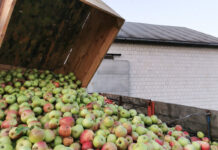




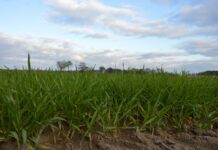

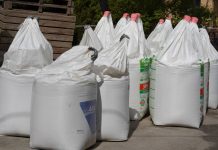
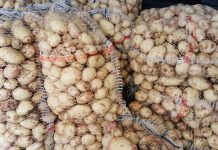
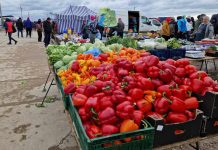
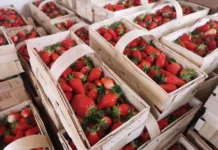
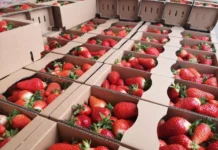
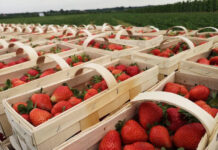
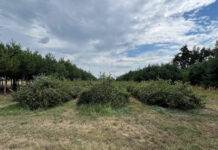
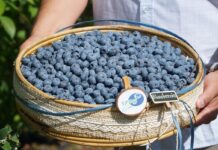
![Zimowe ceny pomidorów, ale czy wszystkich? Niektóre są mniej cenione [13.03.2024] Pomidory](https://www.ogrodinfo.pl/wp-content/uploads/2024/03/Aktualne-ceny-polskich-pomidorow-218x150.jpg)
